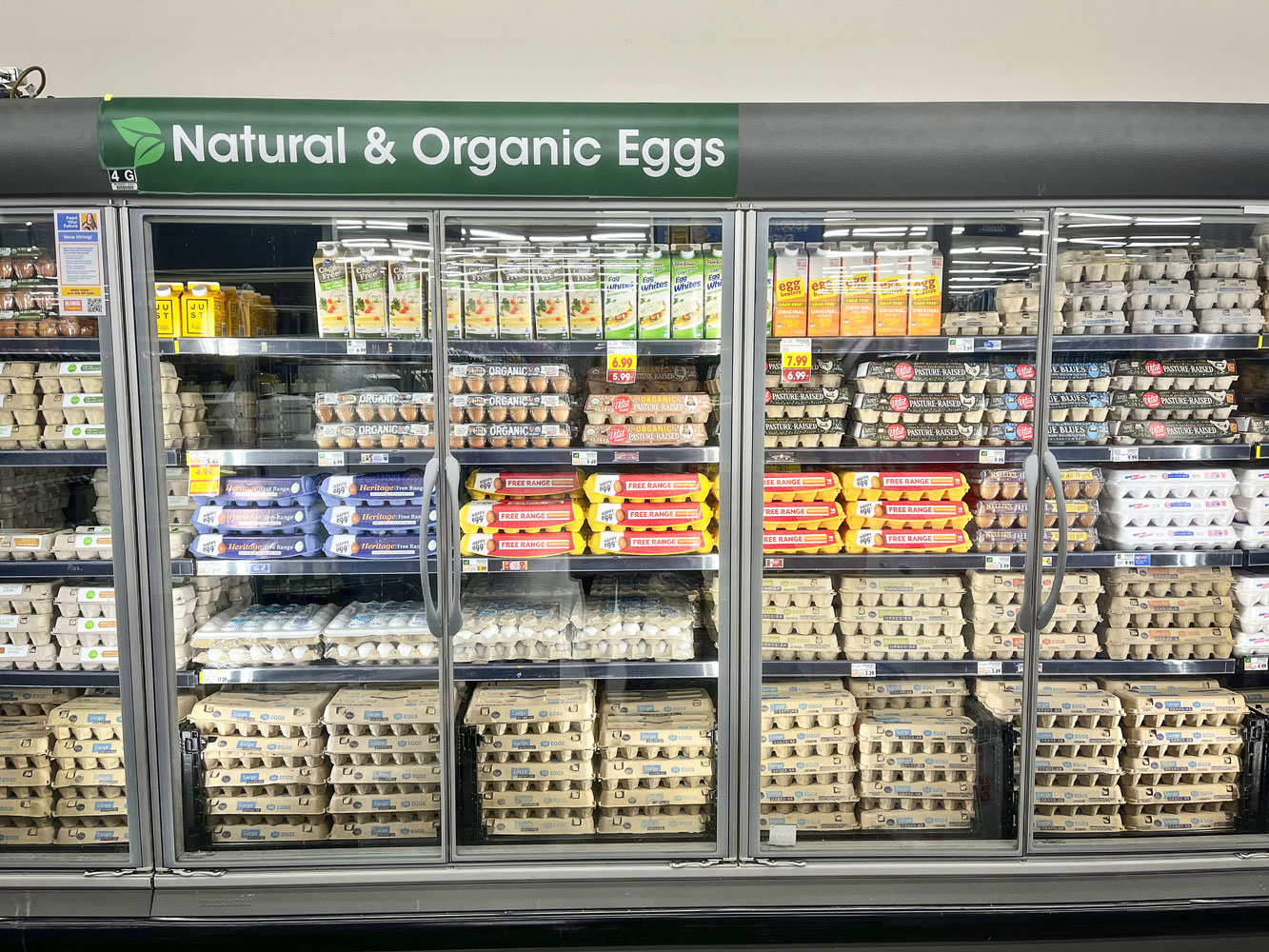Eggs are excellent, but which ones?

The egg section at King Soopers is filled with a wide selection of different types of eggs including white, brown, blue, organic, cage-free, free-range and pasture-raised. It is hard to know the difference, especially when comparing the prices.
Eggs are on most people’s shopping lists all year, but spring is certainly “egg season.” Eggs are hard-boiled and decorated, cracked into many baked dishes and used often to create an easy meal quickly.
Versatile and protein-packed, eggs are a staple in the kitchen, but standing in front of the egg section in the grocery store can be a head-scratcher.
White, brown, organic, cage-free, free-range, pasture-raised…what is the difference? Then there is the sticker shock of comparing prices. Here is some information to help make the best choice based on personal preferences.
Eggs come in a variety of colors based on the chicken breed and their genetic makeup. There is not a nutritional difference between a brown egg and white egg, but there is often a price difference because it costs more to feed the chickens that produce brown eggs.
Terms like cage-free, free-range and pasture-raised all refer to the environment in which the hens live.
Pasture-raised eggs are the highest standard because the hens have space to roam and graze in a large open pasture and supplement their diet with grass, seeds and insects. According to the Cornucopia Institute, a farm policy research group, a healthier environment translates to a healthier egg; pasture-raised eggs have double the Omega-3 fatty acids, nearly twice the vitamin E, and a 38% higher vitamin A concentration than eggs from caged hens. But they are often the priciest.
Free-range eggs are the next-best option after pasture-raised. The term, regulated by the USDA, means the hens are free to roam, though they are still kept in an enclosed area.
Cage-free, a term also regulated by the USDA, means that the eggs come from hens that can freely roam a building, room, or enclosed area but do not have access to the outdoors. Considering the conventional cage is 8.5 by 11 inches, or the size of a piece of paper, cage-free sounds better but according to All About Eggs by Rachel Khong, cage-free facilities have downsides too because the hens are close to each other.
According to experts, other terms that you see on egg cartons are relatively meaningless marketing terms, but some can be confusing. Healthy-sounding labels like “Vegetarian Fed” and “Omega-3-Enriched” actually indicate that the hen was not fed its natural diet. The labels “No Antibiotics Used” and “No Hormones” do not indicate anything that is not already covered by the USDA organic label.
Article and photo by Lisa Nicklanovich